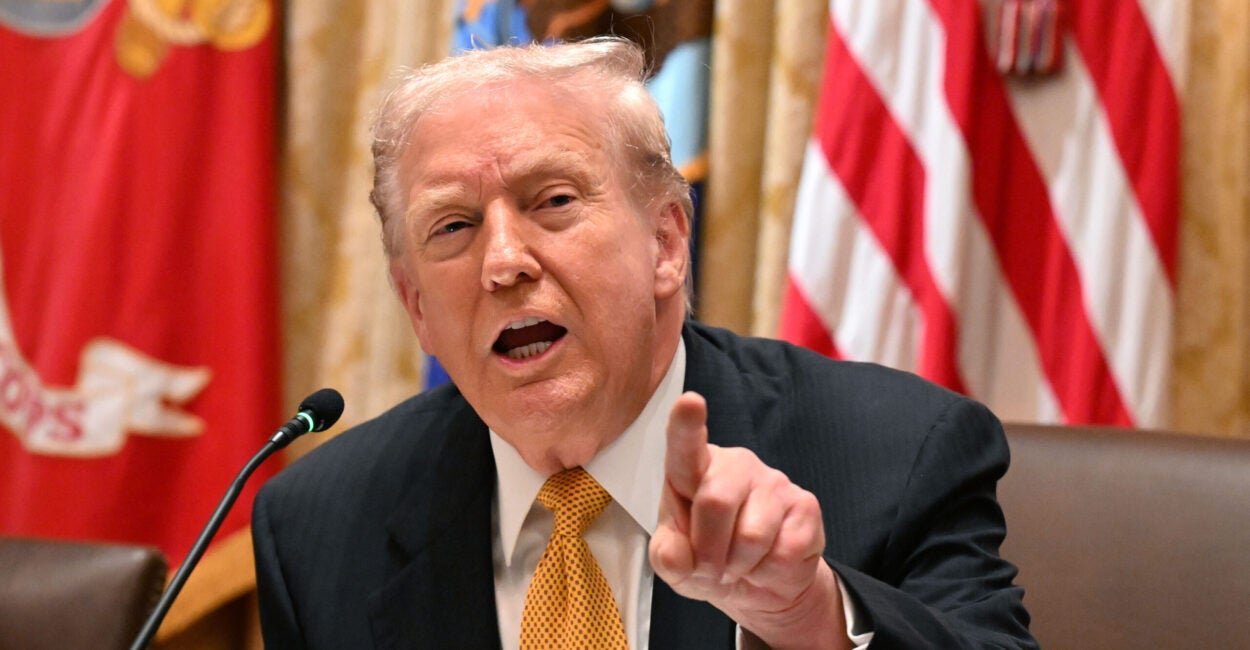Trump Moves Onward and Forward With the ‘Club of Strength’

President Donald Trump keeps growing his strategic engagements to advance American national security via peace through strength.
After facilitating timely conversations between Israeli Prime Minister Benjamin Netanyahu and Kazakh President Kassym-Jomart Tokayev, Trump announced Thursday that Kazakhstan would be joining the Abraham Accords—making it the first country to do so during Trump’s second term.
“This is a major step forward in building bridges across the world,” Trump declared. “There are many more countries trying to join this club of strength.”
Kazakhstan has maintained its diplomatic relationship with Israel for over three decades. Its addition to the now five-year-old accords highlights their strength: an ability to facilitate enhanced partnership.
Since their inception in September 2020, when Trump institutionalized the bilateral pacts between Israel and the United Arab Emirates, Bahrain, and Morocco, the Abraham Accords have yielded measurable steps forward.
The accords paved the way for high-level political and diplomatic visits as well as practical economic agreements, like a comprehensive economic partnership agreement between the UAE and Israel. Meanwhile, defense and security cooperation grew in the fields of air defense, satellites, drones, and homeland security.
More will certainly follow, particularly given that the accords are the best practical example of the U.S. exercising its leadership in relationship with Jerusalem and the surrounding region.
During the historic Abraham Accords signing ceremony in 2020, Trump announced, “Together, these agreements will serve as the foundation for a comprehensive peace across the entire region—something which nobody thought was possible, certainly not in this day and age…one founded on shared interests, mutual respect, and friendship.”
Since then, America’s diplomatic engagement has been robust, with Trump publicly expressing optimism regarding additional countries joining the accords. Though the pace of developments has moderated amid geopolitical tensions, the steady dialogue and concrete progress achieved unambiguously underscore the continuing vitality and future promise of the Abraham Accords.
Now is not the time to discount that process of the Abraham Accords—or, worse, to loosen our commitment to the accords. The agreements have raised the prospects of peace and stability in the region to the highest point in many decades, and that must go on. Now more than ever, the Abraham Accords are integral to establishing peace and prosperity in the region and beyond.
Five years after the signing of the accords, Trump’s pragmatic vision for a regional peace based on American leadership and strategic cooperation with our allies and partners has led to a historic shift. The accords have witnessed a measurable surge in engagements like trade, tourism, innovation cooperation, interfaith dialogue, and civil society initiatives—establishing a new model for people-to-people peace in the region.
Even in the face of the regional upheaval following Hamas’ Oct. 7, 2023, terrorist attacks on Israel, and the resulting war in Gaza, the Abraham Accords have remained intact.
In April 2025, recognizing the accords’ vital importance, The Heritage Foundation adopted the mission of the Abraham Accords Peace Institute. In a recent joint publication, the two institutions point out:
While The Abraham Accords have remained resilient, restoring their positive momentum will require the determined U.S. leadership provided by President Trump as well as commitment from all Accords partners. Two critical missions must now be carried out. The first is to strengthen and deepen existing ties, including on the people-to-people level. The second is to expand regional cooperation, integration, and normalization.
Now is the time to uphold and continue to advance the accords. That will be the true celebration of their 5th anniversary and beyond.